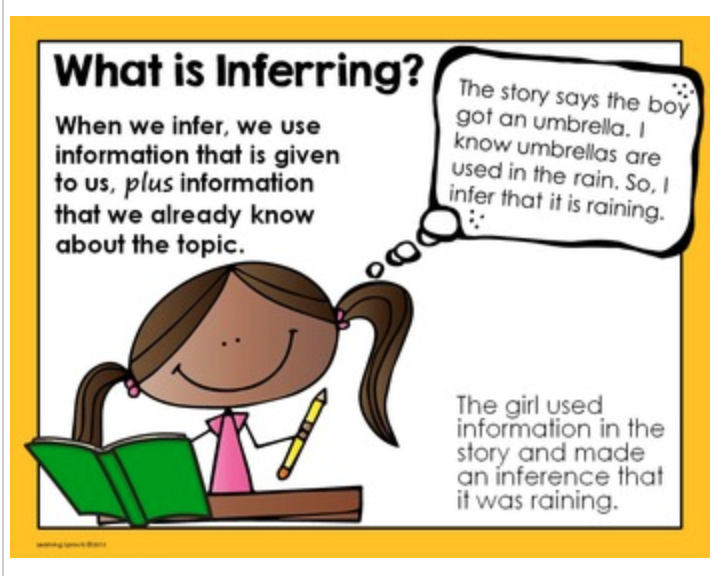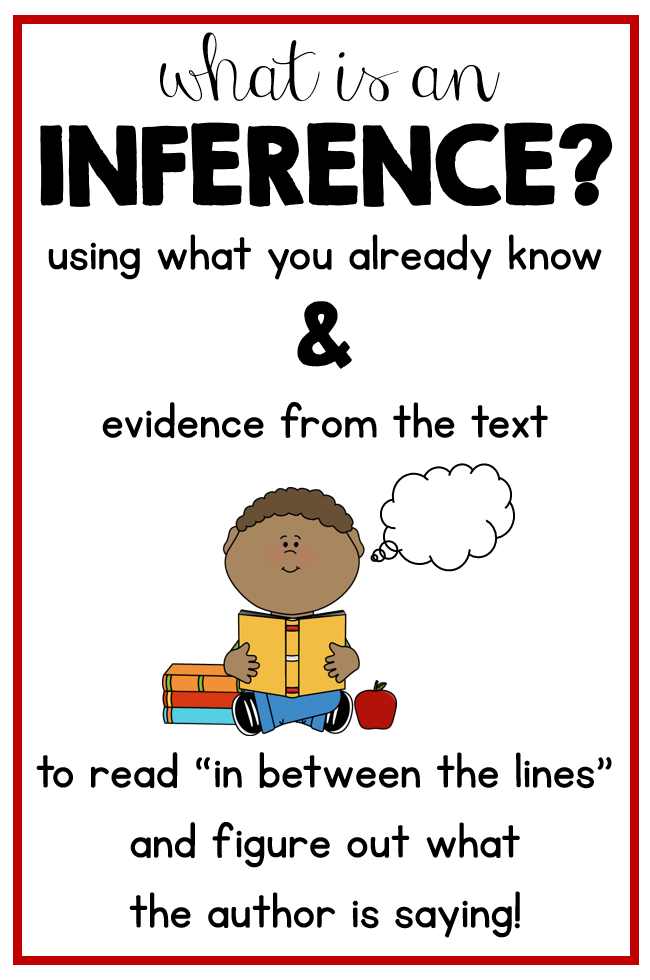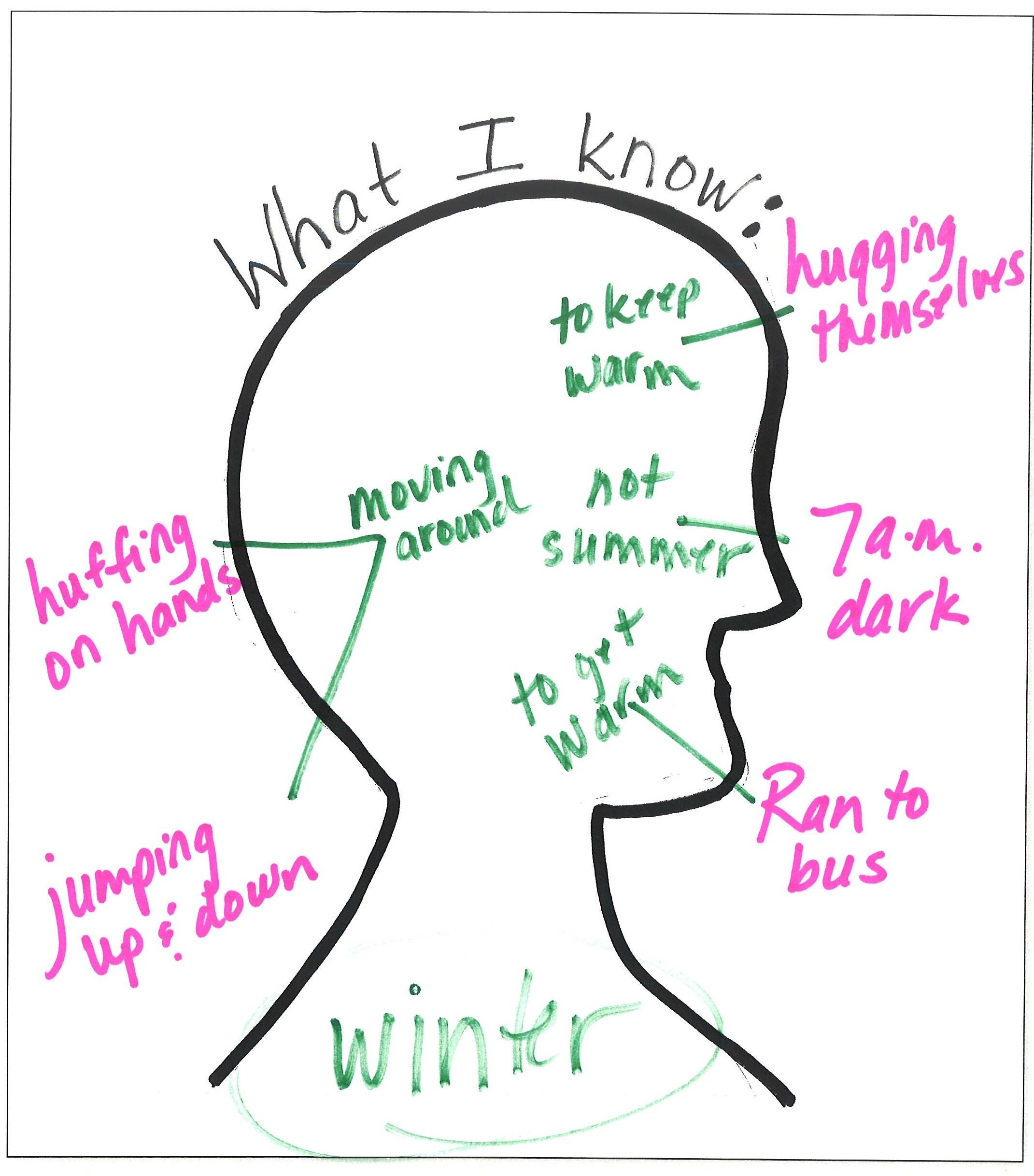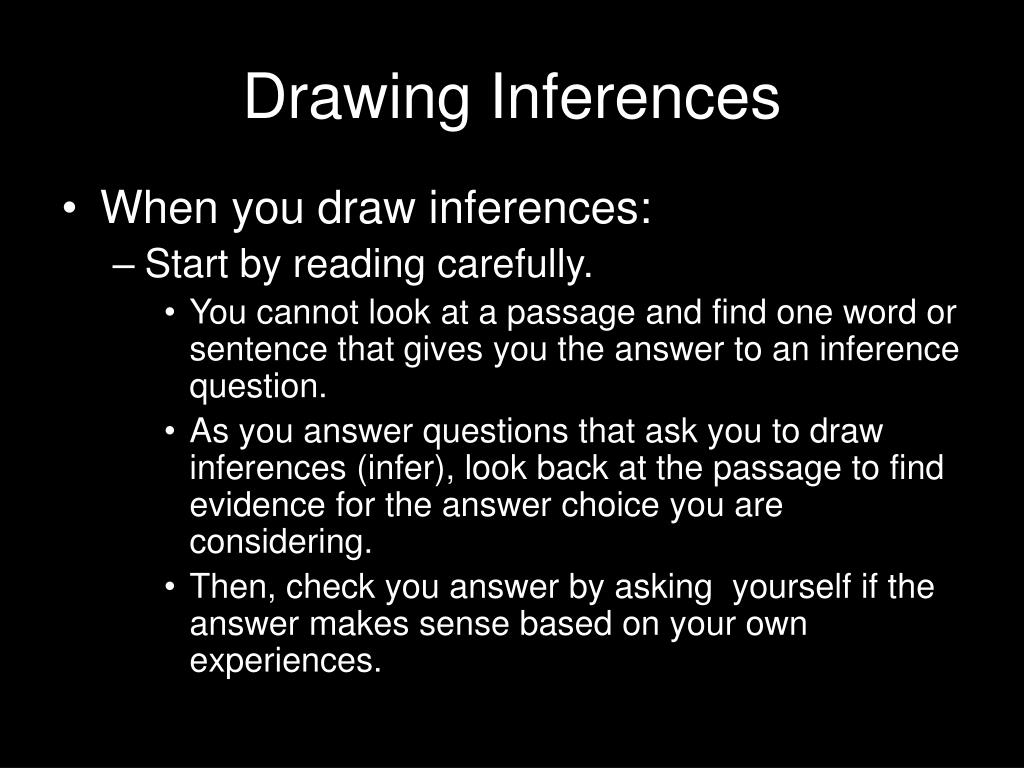Drawing Of Inferences
Drawing Of Inferences - Unlike observations, inferences are not direct facts that. Deductive inferences are the strongest because they can guarantee the truth of their conclusions. Web if you ask your child where the kids in the picture are going, they might say, “to the beach” or “swimming.” what your child is doing is making an inference. Web the purpose of that part of the video was to give you an example of somewhere where you would have to draw inferences to fully understand the story. Web inferences can be deductive, inductive, or abductive. We figure things out by applying our own knowledge and experience to the. Web in contrast, when we make inferences, we reach conclusions based on evidence and reasoning. It’s when you go beyond the evidence and reach some further conclusion. Background knowledge college textbook authors expect you to have a certain amount. Web we draw inferences even from implied facts, implications; Through careful examination of language usage, grammatical structures, and literary devices, readers. Web students must look past what the text says and draw deeper conclusions as they read. Web what is ai inference? Web inference is drawing conclusions based on information that has been implied rather than directly stated and is an essential skill in reading comprehension. Unlike observations, inferences are not direct facts that. These inferences anchor charts will help your students get more from their reading. Web inferences can be deductive, inductive, or abductive. Web in contrast, when we make inferences, we reach conclusions based on evidence and reasoning. The skill requires children to put together various pieces of information, and relies on good word. Making inferences as you read; Inference is the act of drawing conclusions based on observations and prior knowledge (koslowski, 1996). Web we draw inferences even from implied facts, implications; Through careful examination of language usage, grammatical structures, and literary devices, readers. Web in contrast, when we make inferences, we reach conclusions based on evidence and reasoning. Hayakawa, language in thought and action (2 nd. Web learning to draw conclusions and inferences is a skill that develops over time. We figure things out by applying our own knowledge and experience to the. Web in contrast, when we make inferences, we reach conclusions based on evidence and reasoning. Web if you ask your child where the kids in the picture are going, they might say, “to. Web the difference with drawing conclusions and making inferences making inferences: Web an inference is when you draw evidence from a text or have an certain experience that can lead to a sort of conclusion that is not absolutely just out there, because you have text or. Web in contrast, when we make inferences, we reach conclusions based on evidence. Web we draw inferences even from implied facts, implications; Web inference is the process of drawing conclusions based on available information. Web drawing inferences in fiction is a vital skill in understanding literature. Web inference is drawing conclusions based on information that has been implied rather than directly stated and is an essential skill in reading comprehension. Deductive inferences are. Deductive inferences are the strongest because they can guarantee the truth of their conclusions. Web an inference is the process of drawing a conclusion from supporting evidence. Making inferences as you read; Web drawing inferences in fiction is a vital skill in understanding literature. Web students must look past what the text says and draw deeper conclusions as they read. Web what is ai inference? Hayakawa, language in thought and action (2 nd. Web the difference with drawing conclusions and making inferences making inferences: Making inferences is the process of figuring out missing information from information. Background knowledge college textbook authors expect you to have a certain amount. Web drawing inferences in fiction is a vital skill in understanding literature. Web inference is drawing conclusions based on information that has been implied rather than directly stated and is an essential skill in reading comprehension. Web inferences can be deductive, inductive, or abductive. To explain what part of a text means while drawing inferences about that text common. The. Web students must look past what the text says and draw deeper conclusions as they read. Making inferences is the process of figuring out missing information from information. The skill requires children to put together various pieces of information, and relies on good word. Web what is ai inference? Making inferences as you read; Deductive inferences are the strongest because they can guarantee the truth of their conclusions. Web if you ask your child where the kids in the picture are going, they might say, “to the beach” or “swimming.” what your child is doing is making an inference. Inference is the act of drawing conclusions based on observations and prior knowledge (koslowski, 1996).. It’s when you go beyond the evidence and reach some further conclusion. Making inferences is the process of figuring out missing information from information. Through careful examination of language usage, grammatical structures, and literary devices, readers. These inferences anchor charts will help your students get more from their reading. Many authors will put you. Web an inference is the process of drawing a conclusion from supporting evidence. Web the difference with drawing conclusions and making inferences making inferences: Web in contrast, when we make inferences, we reach conclusions based on evidence and reasoning. Web drawing inferences in fiction is a vital skill in understanding literature. Deductive inferences are the strongest because they can guarantee the truth of their conclusions. To explain what part of a text means while drawing inferences about that text common. Web if you ask your child where the kids in the picture are going, they might say, “to the beach” or “swimming.” what your child is doing is making an inference. Unlike observations, inferences are not direct facts that. Web this article discusses the epistemology of design as a process, arguing specifically that sketching and drawing are essential modes of thinking and reasoning. Web students must look past what the text says and draw deeper conclusions as they read. Making inferences as you read; The skill requires children to put together various pieces of information, and relies on good word. Background knowledge college textbook authors expect you to have a certain amount. Many authors will put you. Web the purpose of that part of the video was to give you an example of somewhere where you would have to draw inferences to fully understand the story. Web an inference is when you draw evidence from a text or have an certain experience that can lead to a sort of conclusion that is not absolutely just out there, because you have text or.1202BK_1.JPG Inference, Comprehension strategies, Teaching reading
Drawing Inferences Mrs. Caporale’s 4th Grade Class
Inference How To Anchor Chart Rockin Resources
Susan Jones Teaching Making Inferences Lessons and some FREEBIES!
One Pager Making Inferences Reading Comprehension Strategy AccuTeach
How to Draw Inferences YouTube
How To Draw Inferences Theatrecouple Cafezog
Inferring (Making Inferences) Reading Posters Classroom Decor in 2021
PPT Drawing Inferences PowerPoint Presentation, free download ID
Drawing Inferences Worksheet by Teach Simple
Web We Draw Inferences Even From Implied Facts, Implications;
Inference Is The Act Of Drawing Conclusions Based On Observations And Prior Knowledge (Koslowski, 1996).
Web A Reader Who Thinks About The Subtext In A Reading May Make Inferences Meaning That Has Been Uncovered By Considering The Subtext Of A Reading, Drawing From Your Own.
Hayakawa, Language In Thought And Action (2 Nd.
Related Post:









